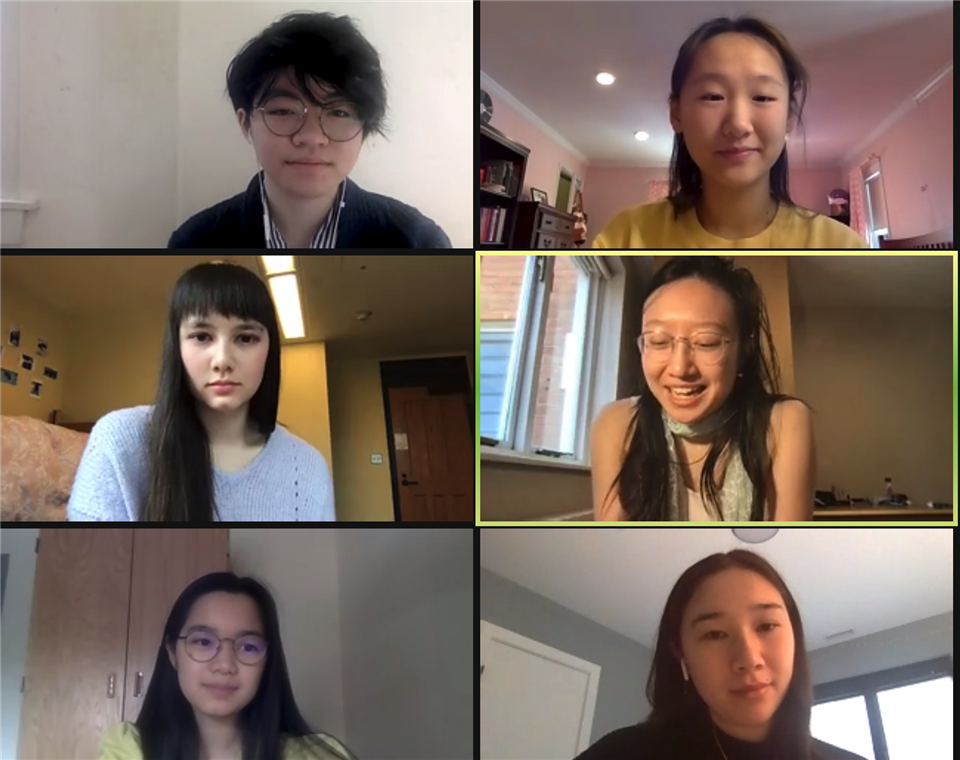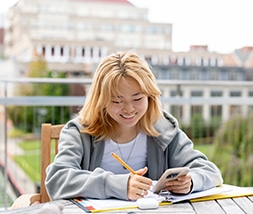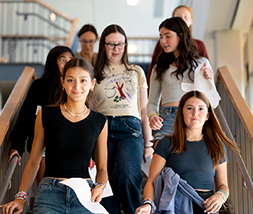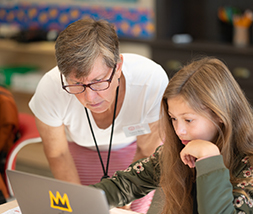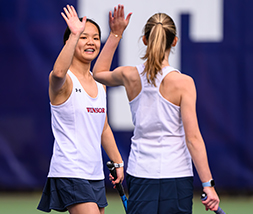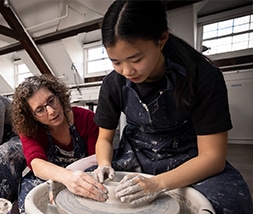Leading up to Lunar New Year, Winsor’s AsIAm affinity group led an all-school assembly designed to inform and engage students, and encourage appreciation of Asian culture. “AsIAm is a community for Winsor’s Asian students where we can come together, eat Pocky, and joke about our tiger parents,” says Jane Hwang ’21, “but ultimately, we connect through sharing our Asian-American experiences with each other.”
Lower School students opened the assembly with skits shedding light on unwelcome Asian stereotypes, from assumptions about what they eat (always rice, and always with chopsticks) to how they perform in school. Upper School students followed with their reflections on their experiences at Winsor, noting how affinity groups helped them meet and forge relationships with other students that share and appreciate all aspects of their Asian culture. They also advocated for continuing expansion of the exploration of culture through a historical lens, and shared their appreciation for courses that allow students to explore their own cultures through individually designed research projects.
The Assembly continued with a panel of Winsor alumnae joining from as far away as London. Erin Simshauser ’17, a senior at Brown University, encouraged students not to take for granted the community opportunities and affinity groups at Winsor. “I didn’t appreciate how small Winsor was in general. Going to AsIAm for the first time, you already know people. At Brown, I tried going to affinity groups, but it was intimidating because I didn’t know anyone.” Crystal Yang ’20, a student at Barnard College, added that she had the same experience. “There are some groups at my college, but they mostly focus on event planning. It’s been hard to try to find the same sort of place that AsIAm has at Winsor. I wish I had appreciated it more while I was there.”
Audrey Wu ’20 shared what it’s been like to be an Asian woman in her field at London’s Guildhall School of Music & Drama. “At my conservatory, there are eight composers. Everyone but me is a white male. These are the people I spend all day with on Zoom. I did see this coming. It happens at every conservatory, and it can be isolating.” She also added that in her course of study, “I’ve had a lot of professors of music talking about imperialism in music…using terms to describe Asian music as exotic. That’s something that I still struggle with…and I didn’t have that [experience] at Winsor.”
Katie Tsai ’19, now a student at Duke University, encouraged students to take the initiative to explore their cultures beyond the classroom and the school community. “Seek out Asian experiences, watch videos, get more exposure. Even if you don’t feel like going to AsIAm, or don’t feel in touch with your Asian identity, getting more representation will help in the long run.”
After the alumnae panel, faculty, staff, and students joined a virtual game of Kahoot! trivia. With Pocky on the line, participants answered questions about Asian culture, traditions, holidays, food, clothing, languages, and geography. The verdict? We all have more to learn.
Science faculty Jonathan Sit is a co-advisor of AsIAm, and in reflecting on his experience with the group, he shared, “I get to work with young, passionate Asian American students to create a welcoming space where we can discuss issues that matter to them. Not every school has a dedicated affinity space like this…I did not get involved in this type of [affinity group] work until later in college, so I’m grateful to share my experience and knowledge, and to inspire the next generation of leaders to continue building on what we have accomplished.”
The AsIAm affinity group focuses primarily on the East and Southeast Asian experience. The affinity group SASA, the South Asian Student Alliance, was formed to support and explore South Asian culture and experiences. In March, SASA will host an all-school assembly, in collaboration with Mosaic, to discuss South Asian and Black representation in politics, which will feature special guest City of Cambridge Mayor Sumbul Siddiqui.
